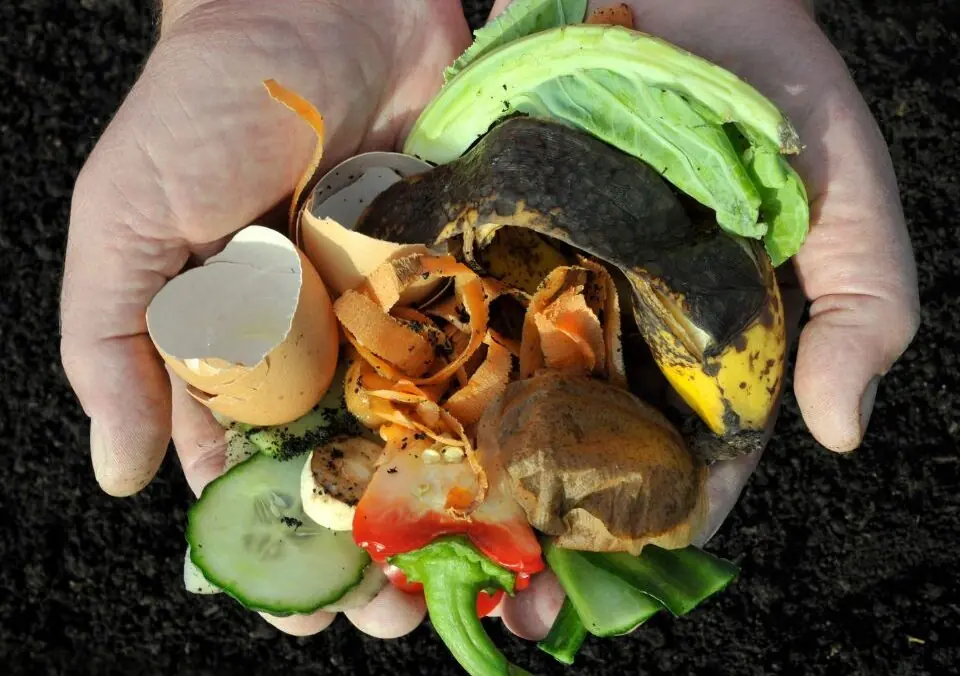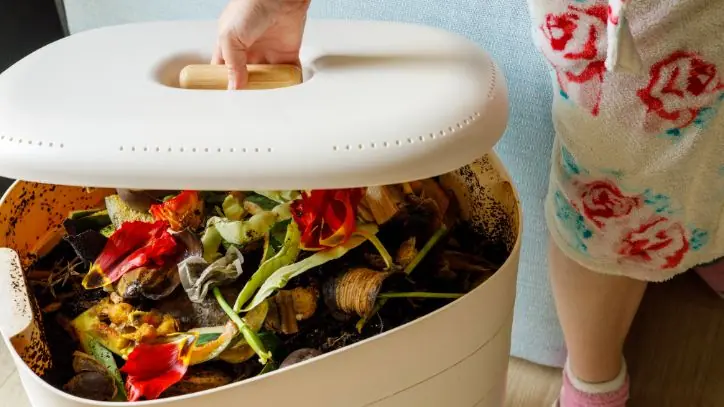Blog
Composting is an Easy Way to Reduce Food Waste!

When you peel vegetables or cut up fruits, do you ever feel bad about all the peels and cuttings just going into the trash can? Many people experience this sense of wastefulness, particularly as awareness of environmental issues and food sustainability increases. It can feel disheartening not to put those scraps to another use. Fortunately, there’s a simple and rewarding solution: composting. By looking at food scraps as valuable resources rather than waste, you can transform what would go into the trash into rich, nutrient-dense compost that benefits your garden and the environment.
What is Composting?
Composting is the natural process where organic materials decompose, driven by microorganisms such as bacteria and fungi, into a rich, dark soil amendment known as compost. This process not only provides nutrients for your plants but also enhances soil structure, aids moisture retention, and supports beneficial soil organisms, all while reducing the amount of waste that ends up in landfills.
According to the Environmental Protection Agency (EPA), approximately 30% of what we throw away is organic material that can be composted. By composting, you help divert this waste from landfills, where it would produce methane—a potent greenhouse gas—during decomposition. Instead, when composted in the right conditions, these materials can break down aerobically and contribute positively to soil health.

The Basics of Composting
Composting is surprisingly simple and doesn’t require many supplies. You can create a compost pile in your backyard or use a compost bin for a more contained approach. Here are the key components to get started:
- Choosing a Location: Select a spot that gets partial shade to prevent the compost from drying out while still allowing for airflow. Ensure there’s plenty of drainage to prevent water accumulation, which can attract pests or create unpleasant odors.
- Starting Your Pile: Begin by laying down a base of coarse materials like twigs and straw. This helps with aeration and drainage. Then, you can start adding your food scraps and yard waste.
- Maintaining the Pile: Regular maintenance is essential for a successful compost pile. Keeping a balance between “brown” materials (carbon-rich) and “green” materials (nitrogen-rich) is crucial. Brown materials include dried leaves, cardboard, and wood chips, while green materials consist of fruit and vegetable scraps, grass clippings, and coffee grounds. Aim for a ratio of about 3:1, brown to green.
- Moisture and Aeration: Your compost should be moist but not soggy. You want to maintain a damp consistency akin to a wrung-out sponge. To accelerate the decomposition process, turn your compost every 4-7 days with a pitchfork or shovel. This introduces oxygen, which is necessary for aerobic decomposition.
What to Compost
Almost all organic materials can be composted, but some are particularly beneficial. Here’s a list of good items to add to your compost:
- Fruit and Vegetable Scraps: Peels, cores, and any spoiled produce can safely be added.
- Eggshells: Provide a valuable source of calcium.
- Coffee Grounds and Filters: These add nitrogen and improve drainage and aeration in the compost.
- Tea Bags: Most tea bags (check for plastic content) can be composted, providing additional nitrogen.
- Grass Clippings and Leaves: These are major contributors to the carbon/nitrogen balance in your compost.
- Paper Products: Shredded paper, cardboard, and napkins without heavy inks or coatings are compostable.
However, it’s essential to avoid certain materials to keep your compost healthy and to prevent attracting pests:
- Meat and Dairy: These can create odors and attract animals.
- Oils and Fats: These do not break down well and can create an unpleasant smell.
- Diseased Plants: Adding diseased materials can introduce pathogens back into your garden.
- Invasive Weeds: Avoid composting any seeds that may spread when the compost is used.
The Advantages of Composting
Composting offers a myriad of benefits that extend beyond just reducing food waste. Here are some advantages to consider:
- Soil Enrichment: Compost is dark, crumbly, and rich in nutrients, providing essential nourishment for plants. Studies show that using compost can improve plant growth, reduce the need for chemical fertilizers, and encourage healthy soil microbiomes.
- Water Conservation: Compost helps soil retain moisture, reducing the frequency and volume of irrigation needed, especially during dry periods. The University of California notes that composted soil requires less water and can withstand drought better.
- Waste Minimization: By composting, you significantly decrease the volume of organic waste that ends up in landfills. This contributes to less methane gas production, reducing your carbon footprint.
- Ecosystem Sustainability: Composting contributes to soil health and biodiversity, which supports healthy ecosystems. The improvement in soil quality enhances your garden’s ability to thrive and resists pests and diseases.
- Educational Opportunity: For families or schools, composting can be a great educational activity. Children can learn about environmental stewardship, biology, and gardening skills through the process.
Using Your Compost
Once your compost has fully decomposed—this can take anywhere from a few weeks to several months depending on conditions—it will look dark and crumbly, with no recognizable food scraps. Here are some ways to use it:
- Top Dressing for Plants: Sprinkle compost around your plants for a nutrient boost.
- Soil Amendment: Mix compost into garden beds or potting soil to improve texture and nutrient content.
- Mulching: Use compost as mulch to suppress weeds, retain moisture, and maintain a consistent soil temperature.
- Compost Tea: Soak compost in water to create a liquid fertilizer that can be used to water your plants.
Resources for Composting
If you’re interested in learning more about composting, various resources can guide you in refining your composting skills:
- The University of Arizona Extension program offers Master Gardener courses that include composting practices, which can provide in-depth knowledge and community resources.
- Many local cooperative extensions provide workshops and information on sustainable gardening practices, including composting. Check out your local extension service for events and resources.
- Online tools and guides, such as those available from the EPA and National Resources Defense Council (NRDC), are excellent starting points for beginners.
Composting in Different Scenarios
Composting isn’t just for garden enthusiasts with vast backyards. It can be adapted to any living situation:
- Backyard Composting: Traditional outdoor composting, as described above. Best if you have ample space.
- Bokashi Composting: This is an anaerobic process that ferments kitchen waste in a bucket using a special starter culture. Great for small spaces or indoor use. More information can be found with Bokashi Composting.
- Vermicomposting: Using worms to decompose organic food waste is effective and space-efficient, making it ideal for apartments. Worm composting systems can be purchased online, or you can build your own.
- Community Composting: Many neighborhoods or communities have shared composting programs, allowing you to contribute your scraps and access compost without a personal setup.
Final Thoughts
Composting is a simple and effective way to reduce your food waste while contributing to a healthier garden and a more sustainable environment. Not only does it recycle nutrients back into the soil, but it also fosters a sense of connection with the environment and the food we eat. With just a handful of brown and green materials and some attention, anyone from urban dwellers to country homeowners can create a robust compost pile that enriches both the earth and their gardens.
If you’re eager to learn more about gardening, reducing food waste, and sustainable practices, consider visiting the Fill Your Plate blog, a great resource for articles, tips, and community programs dedicated to food sustainability and gardening wisdom.
By taking a small step toward composting, you are embracing a more sustainable lifestyle that respects both the planet and your food sources. The transformation of kitchen scraps into lush, organic compost is not just an environmental act; it is a gift to your garden and a step towards a cleaner, greener future.
By Heide Kennedy, Arizona Farm Bureau Communications Intern


















